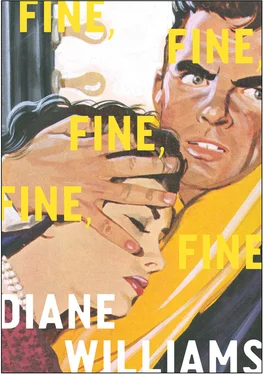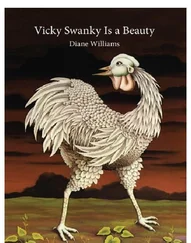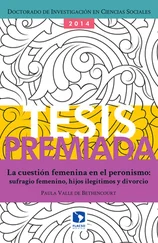I felt an unimaginable touch. Oh, to be sweetly signaled.
A hand pressed against my back. “Come along, Kitty. We’re late. You wanted a bath.”
He kissed his fingers in tribute to me as I turned. And I got up with slow progress, trying for a look of extreme gladness, brushing off the back of my clothing.
A dead or disabled raccoon on the sidewalk, near the hospital, en route home, was attracting several lookers-on — partially on its side — with its legs opened up like scissor blades.
We’ve heard these animals in the trees and guessed what they were doing up there that always sounds so beyond the pale.
This was just going to be a sponge bath, God willing.
“You’re clean enough already,” my husband said.
So that was dear of him and the lineaments of his face are stamped with his best intentions whether he has any of those or not.
I am teal and gray and added colors. I’ve done nothing to hide the ugliness of my elderly body. And let others regret that my character has no allure, because I am worn-out with that also.
We have a roll-top bathtub I had stepped into. I tried to sit. I was angled painfully and wedged on top of one foot — as if I am intent to prove the impossible — that I don’t fit in.
Each child had a claim to a pile of jewelry when my paternal grandmother died — and how did they determine who was to have which pile?
The heirs were sent into an adjacent room and a trustee called out loudly enough to be heard by all of them—“Who will have this pile?”
My father said he shouted—“August Wilhelm will have this pile!”
Thus, my mother eventually received two gem-set rings that she wore as a pair until she achieved an advanced age and then she amalgamated the two of them into one — so that the diamonds and the sapphires were impressively bulked together.
I had to have it. It was a phantasmagoria. I selected it after my mother’s death, not because I liked it, but because it offers the memory of my mother and of the awkward, temporarily placed cold comfort that she gave me.
It’s hard to believe that our affair was so long ago.
This seemed to be my chance. He was obviously — I have tried not to focus on that quality. Although this was not Providence protruding into my life and sticking its big hand out in a hello.
He said, “This happens to me all of the time! Can you help me? You look just like the woman on the bus who was sitting across from me, except for the hair. I have to get something for my daughter. Should I buy TRESemmé?”
“Buy this one,” I said. “I am sure your daughter would like something fancy.”
Then the man said, “I smell a bakery.”
“You said, ‘I smell a bakery’?”
“Yes.”
“I smell it, too.”
“I hate it!” the man said.
“You said you hate it?”
We must have talked for many minutes more about his daughter, and after that I bought plain bond paper and a packet of rubber bands.
I wish he had seemed genuinely impressed by me.
As to the life he was leading, he said there was no wife.
I have always thought I was a careful person, but apparently I can surprise myself.
One aspect of the whole situation is that it would soon seem to be normal.
We now sleep in the same bed, drink one or two glasses of neat whiskey before dinner.
He’s remained with me in my house and so has Clarinda.
Clarinda’s a flower that’s growing that we cannot gather.
She’s not a child and she holds an important position here.
I have forgotten that the man is her father. That is sad to say and sad to hear. I consider her to be my husband’s much younger and his better partner — for the pair of them scorn very similar things.
Often when I make the beds before I start supper, I can forget my family troubles that are unfunny or enigmatic. But soon they come back to me, as if in secret I’d had a coughing fit.
Such misfortunes are like the common corn cockle flowers on the fabric of my wing chairs. Never delicate — the way they’ve lasted — and isn’t it my task to admire them? Didn’t I select it? — that chintz — with slight reluctance, but unguardedly.
In the ocean, Mrs. Clavey decided to advance on foot at shoulder-high depth. A tiny swallow of the water coincided with her deliberation. It tasted like a cold, salted variety of her favorite payang congou tea. She didn’t intend to drink more, but she did drink — more.
Typically, he walks far enough north so that he sees the bridge and he appears to be so casual as he passes objects, the people, rusticated arcades, and heavy keystones.
Here’s how it is — he had just gotten as far as Childs & Son Excavation Company, which has a colonnaded façade.
His wife, back at home, sat in front of their hole-in-the-wall fireplace.
If her husband is delayed, she’ll prepare for herself a nice shirred egg.
Has he anything in mind when he nears Mitchell’s Sheet Metal and the Nelson Fuel Company?
You have got a lot of nerve! comes to mind. Somebody in his childhood said that frequently, but who was it who said it?
His wife is thinking, I am usually in a rush, but I am not in a rush today.
She stows a spool of thread and a needle threaded with the thread. And didn’t she put away her ring? It had been prized and placid on the bureau top, with its many little rough points — the prongs — that in the course of time had never gone and worn themselves down smoothly.
This is how her husband’s feet move his body — it’s a spring-like action.
His wife hunts for more objects to put away. Many are made of cheap metal — boat-shaped or cube-shaped.
She enjoys their real fireplace, sitting by it, studying the in-and-out curve of it and the projecting stub of its mantel.
She tells herself, “Take all the time to clean up that you need.”
By chance, her husband has not yet come up against the bridge he seeks — but he has seen many towers and domes, porches and arches and doors, and he always enjoys the step-gabled buildings in the old town.
Then at last, he sees the bridge that seems to him to be sinking. The bridge has become a boob, or a drunk, or a bum.
His wife puts an egg into a greased custard cup, dots it with butter, salt and pepper, and a drop of milk. She slides the egg — which had spent nearly the entirety of its life stone-cold and refrigerated — into the hot oven.
Her husband is now uncomprehending. The road he’d been on was pointing toward the bridge, so now how did the road suddenly take a sharp turn away from the bridge and head over toward this warehouse?
His wife begins to eat, but she cannot swallow.
You blockhead, you ass!
And her husband is back at the business of piling up the sights that have been left lying around.
Typically, her husband has had an air of daring while he attempts — at each important stage of the trek — to take everything in.
She had stopped insisting that they have heart-to-heart conversations, but for stranded people, they had these nice moments together, and he had his professional enjoyment at the newspaper. He approved the issues there with a scientific mind and he made quite a contribution. He was a consultant in the field of efficiency.
She should have appreciated that, I guess. I don’t know — she felt lonely.
After dinner, he would go into his room and sometimes read or do his engraving or follow up on his stamp collection or solve math problems from that year’s baccalaureate examination. Once he told me that once a year he reread Our Man in Havana . It had something to do with Havana. You know — petty things — I guess my mother wanted full attention, not for him to have private time by himself. I don’t know what my mother did when she was in her room. She was working. She was working a lot. She devoted herself to family matters, making trouble. But I am convinced that she did love him extremely and after he died she said that that was the fact.
Читать дальше







